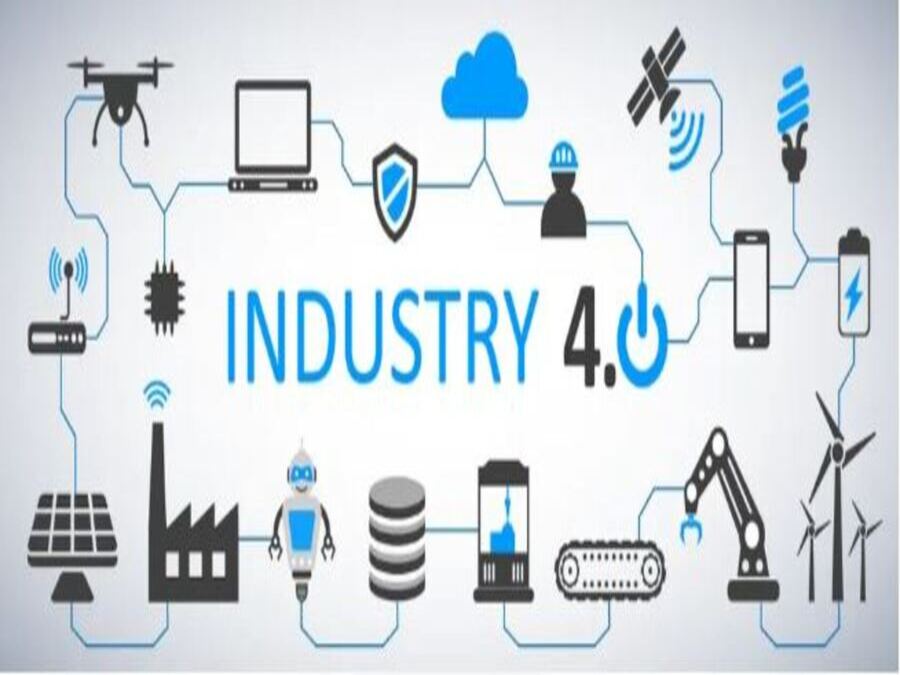Industry 4.0 refers to the fourth industrial revolution, which is characterized by the integration of advanced digital technologies into the manufacturing and industrial sectors. It represents a paradigm shift in the way businesses operate and produce goods.
The key aspects of Industry 4.0 include the use of technologies such as the Internet of Things (IoT), artificial intelligence (AI), big data analytics, cloud computing, and automation. These technologies enable machines, devices, and systems to communicate and cooperate with each other in a connected network, creating what is known as the “smart factory” or “smart manufacturing.”
Industry 4.0 aims to enhance efficiency, productivity, and flexibility in manufacturing processes while reducing costs and waste. It enables real-time data collection and analysis, allowing companies to make data-driven decisions, optimize production, and predict maintenance needs. By connecting various components of the production process, companies can achieve greater visibility, control, and coordination throughout the supply chain.
Some notable technologies and concepts associated with Industry 4.0 include:
- Internet of Things (IoT): This involves connecting physical devices, sensors, and machines to gather and exchange data, enabling remote monitoring and control.
- Artificial Intelligence (AI) and Machine Learning (ML): These technologies enable machines and systems to learn from data, make autonomous decisions, and perform tasks that traditionally required human intelligence.
- Big Data Analytics: It involves analyzing large volumes of data to gain insights, identify patterns, and optimize processes. Data from various sources within the production ecosystem is collected and processed to drive informed decision-making.
- Cyber-Physical Systems (CPS): These systems merge the physical and digital realms by combining sensors, actuators, and networked communication, allowing real-time monitoring and control of physical processes.
- Additive Manufacturing (3D Printing): It enables the production of complex and customized products by building them layer by layer using digital designs, reducing waste and enabling rapid prototyping.
- Cloud Computing: It provides storage, processing power, and access to applications and data through the internet, facilitating scalability and collaboration.
Industry 4.0 has the potential to revolutionize manufacturing, improve efficiency, increase customization, and foster innovation. However, it also presents challenges related to data security, privacy, skills gaps, and ethical considerations. To fully harness the benefits of Industry 4.0, companies need to adapt their processes, infrastructure, and workforce to embrace digital transformation.
Applications of Industry 4.0:
- Smart Manufacturing: Industry 4.0 enables the implementation of smart manufacturing processes, where machines, products, and systems are interconnected. This allows for real-time data exchange, monitoring, and control of production processes, leading to increased efficiency, reduced downtime, and improved product quality.
- Predictive Maintenance: By using sensors and data analytics, Industry 4.0 facilitates predictive maintenance, where machines can detect signs of potential failures or maintenance needs in advance. This approach helps optimize maintenance schedules, reduce unplanned downtime, and extend the lifespan of equipment.
- Supply Chain Optimization: Industry 4.0 technologies enable end-to-end visibility and traceability in the supply chain. This allows for better inventory management, improved logistics, reduced lead times, and enhanced coordination between suppliers, manufacturers, and customers.
- Product Customization: With the integration of technologies like additive manufacturing and data analytics, Industry 4.0 enables mass customization. Products can be manufactured with greater flexibility, allowing for personalized and tailored offerings to meet individual customer needs.
- Quality Control and Inspection: Advanced sensors and AI-powered systems can perform real-time quality control and inspection during the production process. Defects and inconsistencies can be identified early, reducing waste and ensuring consistent product quality.
Benefits of Industry 4.0:
- Increased Efficiency: Industry 4.0 technologies streamline operations, automate tasks, and optimize processes, leading to improved productivity and efficiency in manufacturing.
- Cost Reduction: Automation, predictive maintenance, and optimized resource allocation can result in cost savings by reducing energy consumption, minimizing waste, and optimizing inventory management.
- Improved Decision-making: Real-time data collection, analysis, and visualization provide insights that enable data-driven decision-making, leading to better resource allocation, production planning, and quality control.
- Enhanced Flexibility and Agility: Industry 4.0 enables rapid reconfiguration of production lines and processes, allowing companies to quickly adapt to changing market demands, customize products, and respond to customer needs.
- Innovation and New Business Models: Industry 4.0 fosters innovation by providing new opportunities for product development, customization, and value-added services. It enables the creation of new business models and revenue streams.
Limitations of Industry 4.0:
- Cost and Infrastructure Requirements: Implementing Industry 4.0 technologies can involve significant upfront costs, especially for small and medium-sized enterprises (SMEs). Companies also need to invest in robust infrastructure and cyber security measures to ensure data protection.
- Workforce Adaptation: The adoption of Industry 4.0 requires a skilled workforce capable of operating and maintaining advanced technologies. Upskilling and reskilling programs are essential to address the skills gap and ensure a smooth transition.
- Data Security and Privacy Concerns: With increased connectivity and data exchange, there are concerns about data security, privacy, and the potential for cyber threats. Protecting sensitive information and ensuring secure communication is crucial.
- Standardization and Interoperability: The lack of standardized protocols and interoperability among different systems and equipment can pose challenges for seamless integration and communication across the manufacturing ecosystem.
- Social and Ethical Considerations: As automation increases, there may be concerns about job displacement and the impact on the workforce. Ethical considerations surrounding the use of AI and data analytics, such as data bias and privacy, also need to be addressed.

